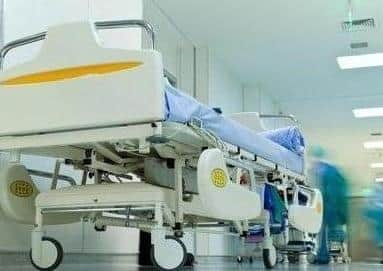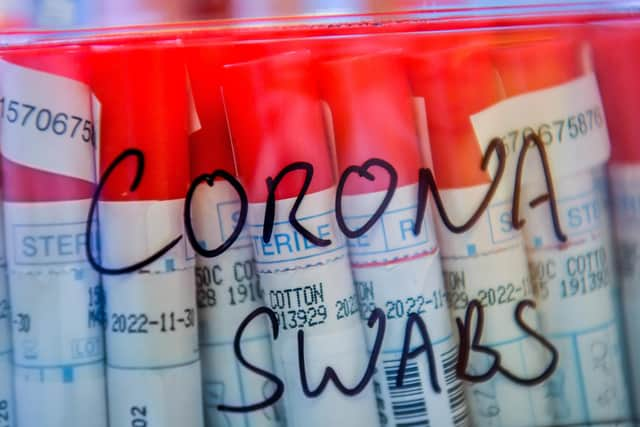Hospital visiting stopped as part of emergency health service planning for the Covid-19 surge - urgent discharge of all medically fit patients
and live on Freeview channel 276
The plans include prioritisation of patient care, reconfiguration of hospital services, urgent discharge of all medically fit patients, and an end to general hospital visiting – with very limited exceptions.
Trusts will also be maximising and utilising all spare capacity in residential, nursing and domiciliary care.
Advertisement
Hide AdAdvertisement
Hide AdThe plans are detailed in a letter to Trust chief executives from the Department’s Permanent Secretary Richard Pengelly.
Mr Pengelly’s letter to colleagues states: “Our health and social care system has never been more needed nor more under pressure than it is today. Right across our system, from top to bottom, people are shouldering this burden and doing all they can to prepare services for the full impact of Covid-19.
“In that context, I want to start by putting on record my deep gratitude to you and everyone in your teams for the determination, commitment and energy being brought to this daunting task. I hope you all draw strength from the incredible public support that is evident for our health service and all those who work in it.”
The letter acknowledges: “Even if the social distancing measures have the impact we hope, our modelling still indicates that we will require more critical care capacity than is currently available.”
Advertisement
Hide AdAdvertisement
Hide AdTrusts had already moved to postpone all non-urgent elective appointments in order to free up staff for additional training.


The next stage – in the event of the Covid-19 pandemic moving into different phases – will involve further measures to concentrate resources on essential patient care.
“In some cases, it is recognised that this may mean that other services are temporarily reduced as the focus is on providing essential services and helping those most at risk access the best possible treatment.
“It is therefore suggested that clinicians should begin to categorise patients into priority groups. The lowest prioritisation would be where treatment can be delayed for 2-3 months with no predicted negative outcome. Urgent and emergency treatments should continue to be given top priority.”
Advertisement
Hide AdAdvertisement
Hide AdIssues also dealt with in the letter include provision of Personal Protection Equipment (PPE), supply of ventilators and other respiratory equipment, Covid-19 testing, and staff accommodation.


“For those staff affected by the 14-day household isolation policy, staff should - on an entirely voluntary basis - be offered the alternative option of staying in hotel accommodation while they continue to work. This should be organised locally by HSC Trusts.”